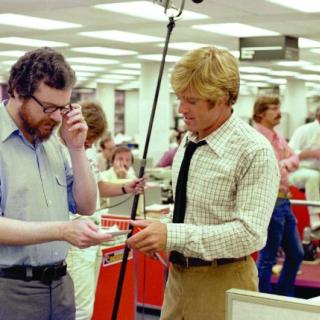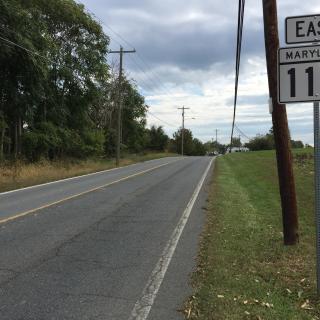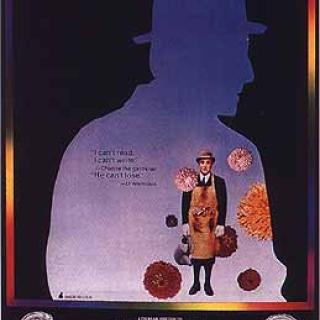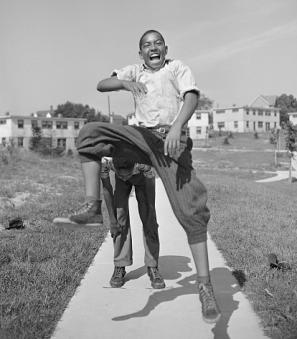The Real-Life Setting for "American Hustle"
If American Hustle had won Best Picture at the 2014 Academy Awards, it may well have created a new tourist attraction in the nation's capital, even though the story takes place elsewhere. We're talking about the six-bedroom house at 4407 W Street NW that the FBI rented to use as a base for the Abscam sting operation that inspired the film, in which a U.S. Senator, six members of the U.S. House, and assorted other local and state-level politicians in New Jersey were convicted of accepting bribes from a fictitious favor-seeking Middle Eastern sheik. (Here's a surveillance video clip showing the inside of the house, which features the late Rep. John Murtha, D-Pa., who was offered a bribe but turned it down, later insisting to FBI agents that he was seeking investment in his district. He ultimately was not charged with a crime.)
In a strange twist, the FBI leased the house in 1978 from an unwitting journalist, then-Washington Post foreign editor Lee Lescaze, who was heading to New York to work for the Post there. Lescaze, who died in 1996, detailed his home's role in the ruse in a 1980 Post article.
In his account, Lescaze recalled that he was contacted by a would-be tenant who identified himself as L. Robert Johnson, secretary-treasurer of a company called Olympic Construction, which had an office in nearby Rosslyn. Lescaze wrote that Johnson was willing to rent the house for three years for $1,200 a month, but only with the proviso that he could install $25,000 worth of improvements, including an elaborate burglar alarm system and some recessed lighting and wood paneling in the basement. Lescaze was puzzled, and more so after his rental agent discovered that Olympic Towers in New York City, which Johnson had listed as his previous address, had no record of him ever residing there. But Johnson's bank reference vouched for him, and Lee Kaufman, the New York-area interior decorator to whom Lescaze was referred for more details about the proposed improvements, seemed convincing.
After the new tenant moved in, neighbors couldn't help but notice that he had a few odd quirks. He seldom stayed in the house overnight, but had many visitors, all of them men who were well-dressed and carrying briefcases. The owner heard about all this, and wondered if the CIA was using his home as a safe house. But he wasn't all that concerned. "I was happy to have a rent check each month, and my real estate agent told me the house was being extremely well-maintained," he wrote in 1980.
Melvin Weinberg, the FBI informant who was the real-life inspiration for the Irving Rosenfeld character played by Christian Bale in the film, apparently was pretty impressed with the swank property the FBI had rented. In Robert W. Greene's 2013 book on Weinberg, The Sting Man: Inside Abscam, the W Street house is described as "a swindler's dream. It had the aura of old money, conservative, tasteful, solid." The FBI also had wired it thoroughly for surveillance--even putting a hidden camera inside a TV set.
As it turned out, though, the FBI's use of the W. Street house in Abscam actually was an afterthought. As Greene details in his book, the FBI actually acquired the house for use in a different sting operation, in which its front company, Olympic Construction, tried to ferret out bid-rigging in Washington-area construction. According to Greene, Weinberg learned that the local construction sting had turned out to be an expensive flop, and that the FBI was hoping to get some return on its investment by by repurposing the house for a second sting.
Lescaze returned to the house in January 1980--the Post wanted him to return to DC a year earlier than expected, and he hoped to convince his tenant to move out early, even though the lease didn't have an early termination clause. The man who claimed to be Johnson would only agree to do so if he was paid at least $7,000 in compensation, which deterred Lescaze. The Post journalist recalled that he didn't like the new basement paneling, which he described as "disagreeably dark, cheap-looking imitation barn wood." Lescaze also noticed other peculiarities. Though Johnson's office was only a short drive from the house, he had a teletype machine and several phones installed, and there was a lock on the door of a basement room, whose key Johnson conveniently had left at the office.
As Lescaze later deduced, the room was where the FBI hid its videotape decks, which recorded the surveillance footage captured by cameras and microphones that were concealed in the basement paneling and ceiling. (Greene's book confirms some of those details.)
When the scandal broke just two weeks after his visit, Lescaze called Johnson. The phone was answered by an FBI agent, who informed Lescaze that Johnson was "totally unavailable," and it wouldn't be convenient for him to stop by that day, since "we're still chasing people down." The agent did inform him that he could soon have his house back.
According to real estate website Redfin, the W Street house last changed hands in 2011, for a price of $1.4 million.





![Sketch of the mythical fuan by Pearson Scott Foresman. [Source: Wikipedia]](/sites/default/files/styles/crop_320x320/public/2023-10/Goatman_Wikipedia_Faun_2_%28PSF%29.png?h=64a074ff&itok=C9Qh-PE1)












